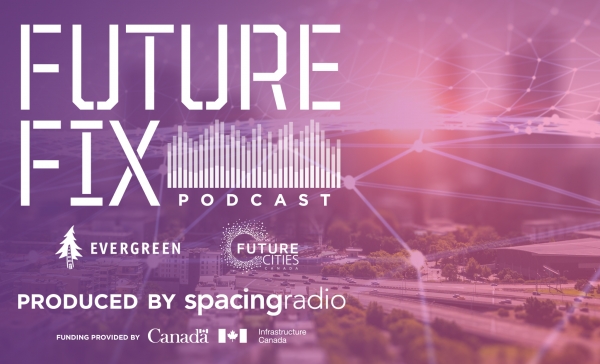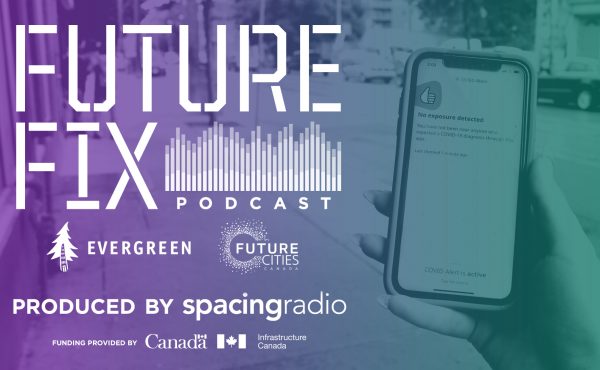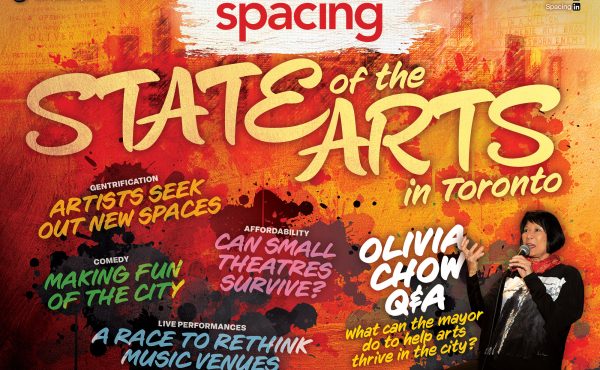Spacing and Evergreen proudly present The Future Fix: Solutions for Communities Across Canada, a special podcast series.
THIS EPISODE: Smart Cities, Reconsidered
The term “Smart Cities” has been kicking around for about a decade now. When we began The Future Fix series, that term was headline news. Everyone, including multiple levels of governments, was being asked to imagine a new kind of urban space, where data and technology were woven into the very fabric of the neighbourhood. Since then, the Smart Cities conversation has evolved, important questions have been asked, a global pandemic happened, and we have more examples, from communities across Canada, about what works, and what to avoid.
John Lorinc is a Spacing senior editor and author of the book “Dream States: Smart Cities, Technology, and the Pursuit of Urban Utopias.” He’s been researching data and tech as it relates to cities and urban politics and planning for years now, and his book earned the Writer’s Trust of Canada Balsilie Prize for Public Policy.
“Because of the pandemic and because so much of our lives had to go online for this period of time, and in many ways stay online, a lot of the ideas around Smart Cities and this hyperconnectivity and this use of big data became actually part of the way our cities our cities function. Except we stopped calling it ‘Smart Cities’.”
Martin Canning is executive director of government innovation at Evergreen. He tells us about what he’s learned about data and technology projects in communities across the countries, through his work with the Community Solutions Network, and what makes a “Smart” project successful.
“There’s a dark side and there’s a light side, and I’ll stick to the light side, when we’re thinking about the future and where technology is often driving us, sometimes pulling us. But when it comes to cities, and public sector markets, and government innovation and community innovation in Canada and around the world, what I see […] is not just an appetite, but a culture that is opening to allow for multi-sectoral partnership like we haven’t seen before.”
Listen to the episode to hear more about the future of “future fixes.”
The Future Fix is a partnership between Spacing and Evergreen for the Community Solutions Network: a program of Future Cities Canada. As the program lead, Evergreen is working with Open North and partners to help communities of all sizes across Canada navigate the smart cities landscape. The Community Solutions Network is supported with funding provided by Infrastructure Canada.




